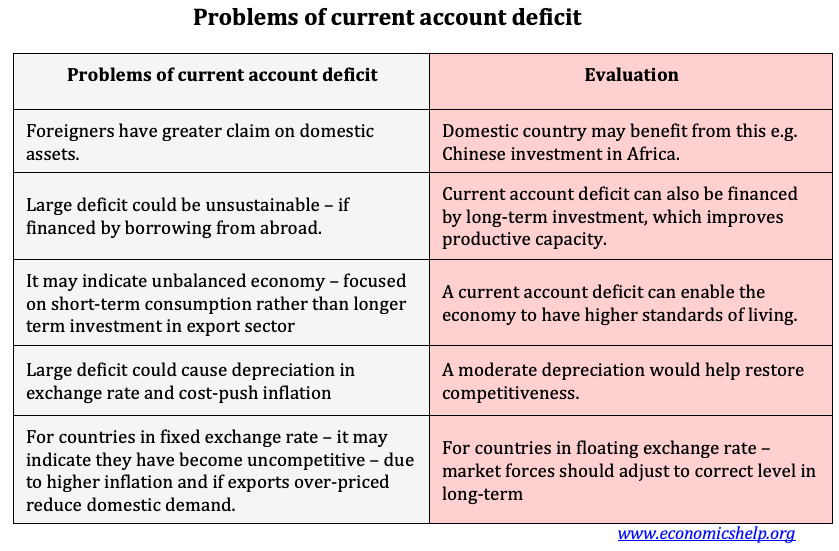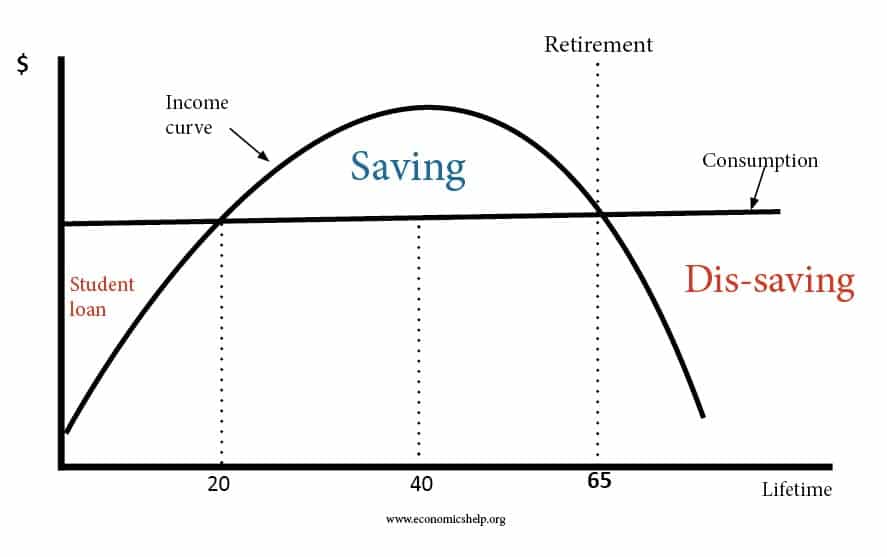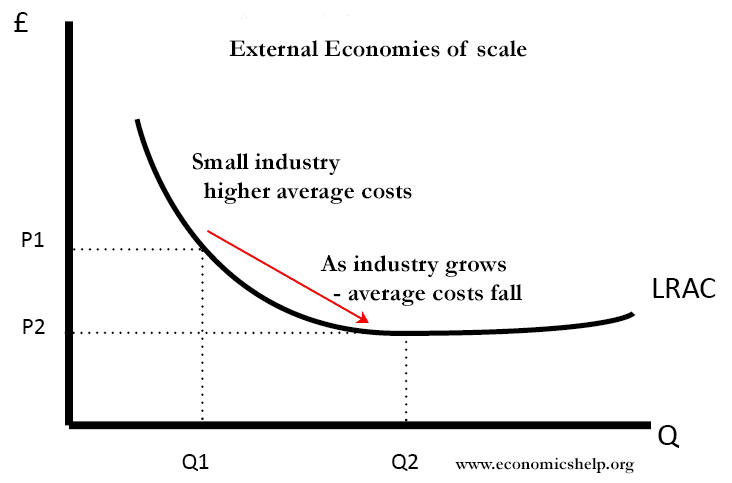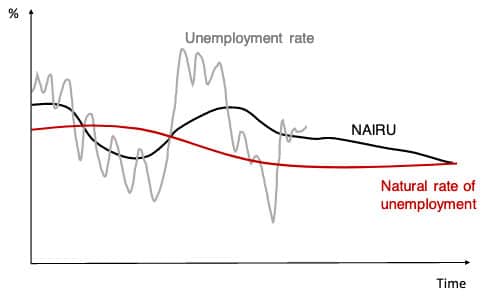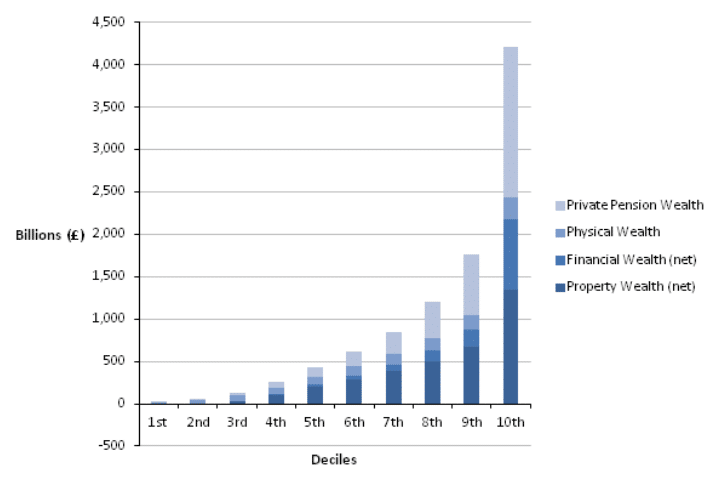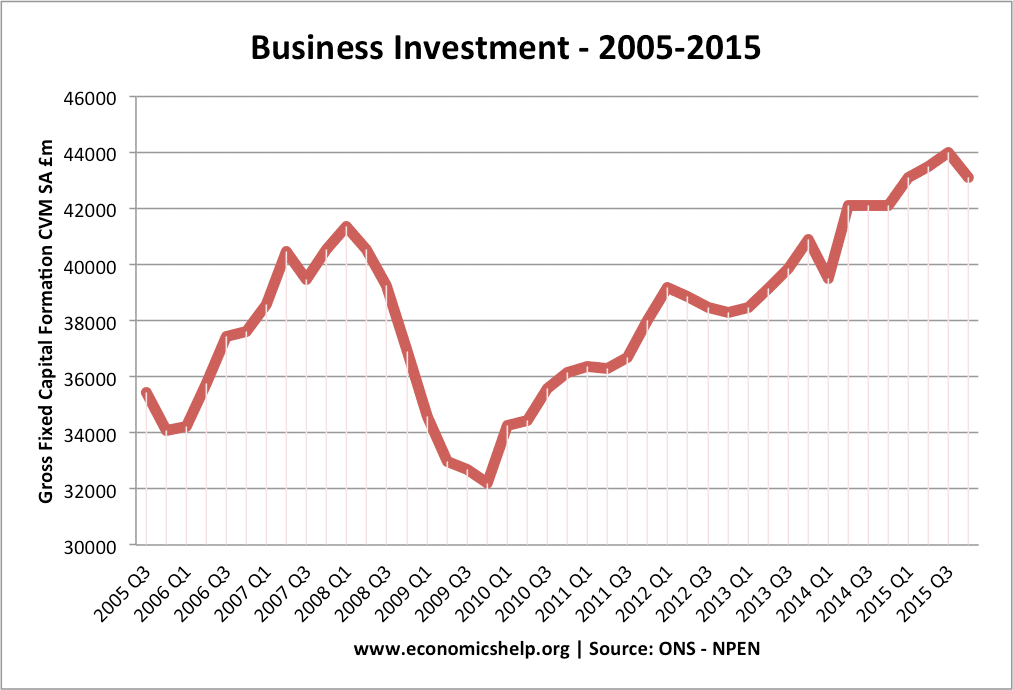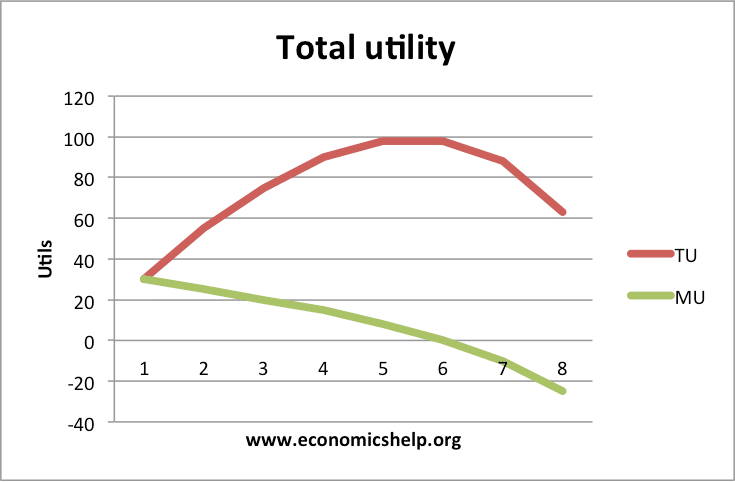Problems of a current account deficit
A current account deficit means the value of imports of goods/services / investment incomes is greater than the value of exports. It is sometimes referred to as a trade deficit. Though a trade deficit (goods) is only part of the current account. If there is a current account deficit, it means there is a surplus …

